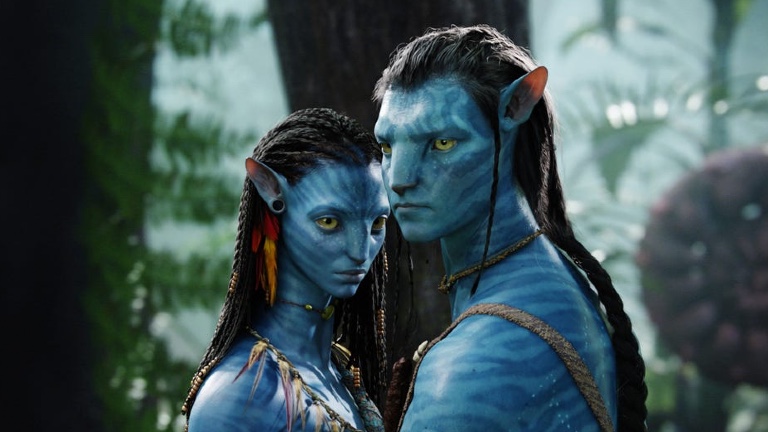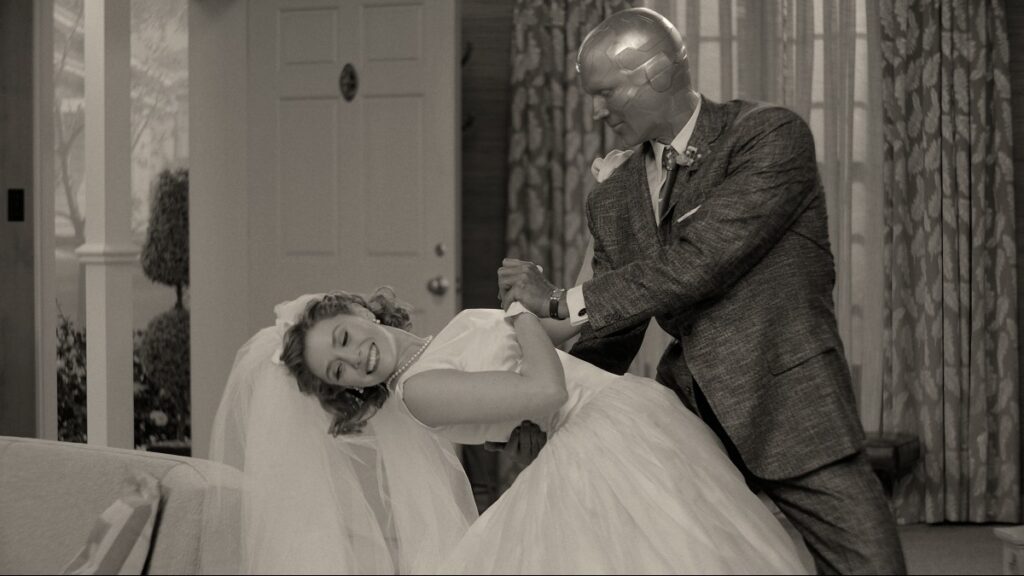
Any time someone shows up in your preferred news feed with an opinion, claiming to know what they’re talking about, it’s fair to ask, “Wait, who are you? What are your credentials? Why do I care?” These are good questions. I ask them myself. So now, as I show up in yours, I figure you’re probably wondering the same thing.
The simple answer is that I’m a screenwriter who has been working in this industry for almost a quarter century, and a journalist who has been a professional for ten years longer than that. I’m also a lifelong fan of film, and have been conducting an alternately avocational and vocational survey of it since I was wee.
Point is, I have a pretty studied eye about what goes on in the entertainment industry, how the business works, and what it takes to analyze it all. You can decide for yourself If this is true over the next several months, as I’ll be turning up in this space every Wednesday to talk about the TV industry and the upcoming Emmy awards. I spend as much of my life watching television as I do consuming movies, so it makes sense that I would be as schooled in the one as the other. Especially, as it happens, when I can talk about them in tandem.
For instance, television is far ahead of film in recognizing the greatness of genre fare. Science fiction, horror, fantasy, action-adventure, all of these have found a far higher level of acceptance on the smaller screen than on the larger one. Doubt it? Well, allow me to point out that the show with the most ever Emmy awards is Game of Thrones, and, in just the last few years, series like Black Mirror, Westworld, and, more recently, The Outsider and The Mandalorian have found not only recognition by the Emmys, but also varied levels of success.
Other than The Shape of Water three years ago, The Lord of the Rings: The Return of the King thirteen years prior, and Silence of the Lambs a dozen years before that, it’s hard to point to a lot of success for genre projects in non-technical categories when it comes to being recognized by the Academy of Motion Picture Arts and Sciences. That’s a mouthful, I know, but it’s also true. Simply put, television respects all genres — I mean, Comedy has its own whole section, for crying out loud — in a way that film simply doesn’t.

Television understands that many of the shows people enjoy watching are actually, y’know, good, and should be recognized for that with awards along with the good ratings. Now, high ratings don’t always mean critical acclaim and awards glory, there is a whole subculture of network crime shows that serve as a perfect example of this, but the two go hand in hand far more often than they do with TV’s filmic counterpart. Sure, Titanic won a boatload of Oscars, and James Cameron’s dozen years later followup, Avatar, did pretty well, but most other big-budget popcorn fare is ignored. These are outliers, and sort of exceptions to the rule. I would argue, in fact, that Avatar was only recognized with nine Oscar nominations (and three wins!) because it was a Cameron film. If any other filmmaker had made that movie, even Steven Spielberg, I think it would have been applauded for its technical advances, recognized thusly, and then would have been ignored completely in the Best Picture race.
That kind of thing just doesn’t happen in television. If you doubt it, look only to last year’s Best Drama Series nominations, and the inclusion of The Mandalorian therein. Two years earlier, there was Westworld among the nominees. Shows that are breaking the norm and pushing the envelope are being recognized right alongside more traditional fare like Ozark, Succession, Better Call Saul, and The Crown, just to name four right off the top of my head.
Maybe it’s because of the somewhat holier than thou attitude of the film industry that this envelope pushing is not recognized in nearly the same way. Even when the Academy recognizes its own mistake, and adjusts accordingly, it still finds a way to drop the ball. I won’t get into my feelings regarding the work of Christopher Nolan, nor will I get too deeply into how spectacularly overrated I believe The Dark Knight to be, but I will acknowledge the movie’s rabid following. It was the biggest film of 2008, and had almost universal acclaim (a 94 on Rotten Tomatoes!). And yet, it was not given a Best Picture nomination, and the resulting uproar led the Academy to expand the field of Best Picture nominees from five to as many as 10. The idea behind that was to recognize more blockbusters that might not otherwise make the cut with the higher brow fare the Academy normally honors (high brow fare like, say, Crash, or The Artist, or Argo, or Green Book, and if you can’t tell, I’m laying on the sarcasm pretty thick).
Would you like to hazard a guess as to how many superhero movies have been honored in the years since? That would be one. Black Panther is the only such film to be included, even though the argument could be made that several in that genre were worthy, such as, say, Captain America: Winter Soldier and Avengers: Endgame, to name two. (Yes, technically, Joker counts in that category, but it’s not a conventional example of the genre, so I exclude it for these purposes.) Taking it one step further, as good a movie as Black Panther is, I think it earned its nomination as much for being a cultural sensation as for being a really good movie.

Television being so far ahead of film in this regard bodes well for at least one new series that will be getting a fair amount of regard and discussion in the weeks leading up to the reveal of the nominations. WandaVision was a truly original work that was not only a blast to watch, it also paid tribute to the decades of television that came before it. That, and it had a few killer twists in it that kept us all guessing. There is no chance it won’t light up the Limited Series division of the awards, and it will deserve every nod it gets. (The Falcon and The Winter Soldier, on the other hand, will not be as lucky, I suspect. I mean, it’s entertaining in its way, but it’s not very good, regardless of its genre.)
That no one is even talking about WandaVision’s genre is a triumph in and of itself, and such a perfect example of the dichotomy between TV and film. It’s ironic, too, that TV has so surpassed film in its storytelling, while at least equaling it in prestige. Nobody is talking about this being a Golden Age of the film industry the way they’re referring to it with television, and yet the snobbery still exists.
Like most types of snobbery, I don’t expect that to change any time soon, as people tend to be pretty stubborn about it, but that doesn’t mean we can’t continue to call it out.

Neil Turitz is a journalist, essayist, author, and filmmaker who has worked in and written about Hollywood for nearly 25 years, though he has never lived there. These days, he splits his time between New York City and the Berkshires. He’s not on Twitter, but you can find him on Instagram @6wordreviews.





